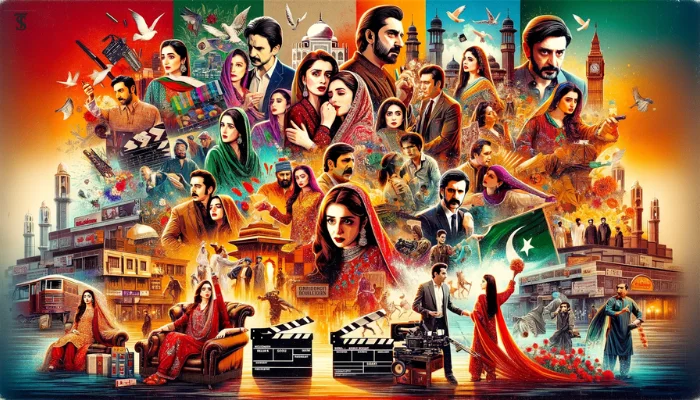A recent Pakistani tv (drama) serial Zard Patton Ka Bunn is focusing on various social issues faced by Pakistani women. For instance, everyday harassment; lack of economic and political opportunities or rights. This serial also is a sweet love story, not a stereotypical one.
The drama is written by Mustafa Afridi and directed by Saife Hassan. Sajal Aly and Hamza Sohail are the main leading actors.
Zard Patton ka Bunn is entrenched with multifaceted struggles of daily life, related to gender inequality, women’s empowerment, lack of education, child labour, violence against children, inadequate family planning and overpopulation, all deeply rooted in a patriarchal societal framework.
These challenges are presented through the lens of rural life, which is hardly presented in a tv serial because they can often be considered taboo (both in rural and urban Pakistan).
The theme of women’s education is prominently emphasised, even in the drama’s original soundtrack (OST). One of the powerful lines of the OST lyrics is, “Pakdo Pakdo Pakdo dekho padh na jaye ladki…Arey jakdo jakdo jakdo agay badh na jaye ladki…” which means catch her, stop her, make sure the girl does not get the education, success, or get ahead in this society. These lines convey the patriarchal mindset in Pakistan that seeks to suppress women’s access to education and progress.
Sajal Aly plays as Meenu and Hamza Sohail as Dr Nofil in this drama. The drama spins around Meenu, a village girl who has big dreams of becoming the first lady doctor in her village. Her family, especially her brothers, did not support her, while her father supported her in her cause.
On the other side, Dr Nofil, a government-appointed doctor, is stationed in the same village to manage the hospital plagued by lack of facilities and resources. The drama also sheds light on the critical issue of lack of healthcare infrastructure, showcasing how even the basic instruments necessary for patient care are absent.
The drama also addresses social evils like child labour and violence shown through two poignant incidents. The first involves a girl, likely under the age of 15, who is subjected to severe physical and brutal torture by her employer in the city. This mistreatment tragically leads to her death, highlighting the grave consequences of child labour.
The second incident revolves around a pregnant woman, already a mother of four children, who dies during childbirth while delivering her fifth child. This underscores the pressing issue of inadequate family planning, especially in rural areas.
Apart from these social issues, the drama introduces a heartwarming subplot: a sweet love story. Dr. Nofil, attempting to contact his family, struggles with poor mobile signals in the village. Meenu steps in to help him by suggesting he climb a tree to find a signal. This moment not only adds a touch of light-heartedness but also shows the lack of digital infrastructure in Pakistan’s interior villages, which contributes to a low digital literacy rate.
Moreover, the serial beautifully shows the bond between parents and children. Dr. Nofil communicates with his father openly and fearlessly, treating him like a trusted friend. He shares both his triumphs and challenges, illustrating how parents can be the best supporters and advisors for their children.
This drama also sheds light on caste-based discrimination through the lens of traditional skills and professions. Meenu’s nephew aspires to learn the art of playing the dholl (drum), a culturally significant musical instrument. However, his family discourages him, as playing the dholl is stereotypically associated with lower-caste individuals.
Under the umbrella of Zard Patton Ka Bunn, the drama concludes on a motivating note showcasing the fulfilment of her dreams. Meenu expresses heartfelt gratitude to everyone who supported her journey to becoming a doctor, emphasising the power of collective encouragement. Last but not least, Hassan Badshah’s ghazal ‘Naghma-e-Ishq’ enhanced the drama’s emotional depth.
This drama is a reflection of real-life events, showing how the entertainment industry can play a pivotal role in changing the perspective of society. By highlighting critical issues and showcasing solutions, the drama industry can contribute significantly to the betterment of society.
